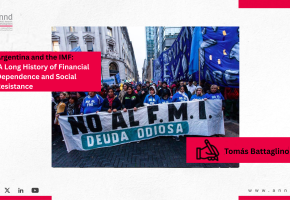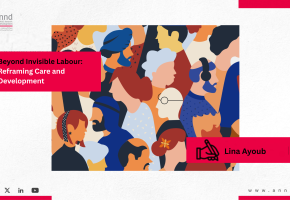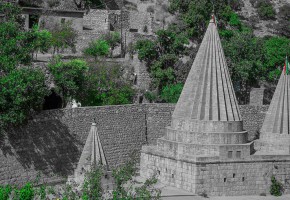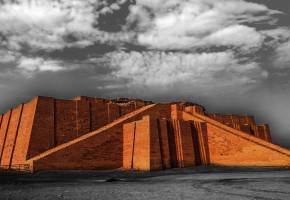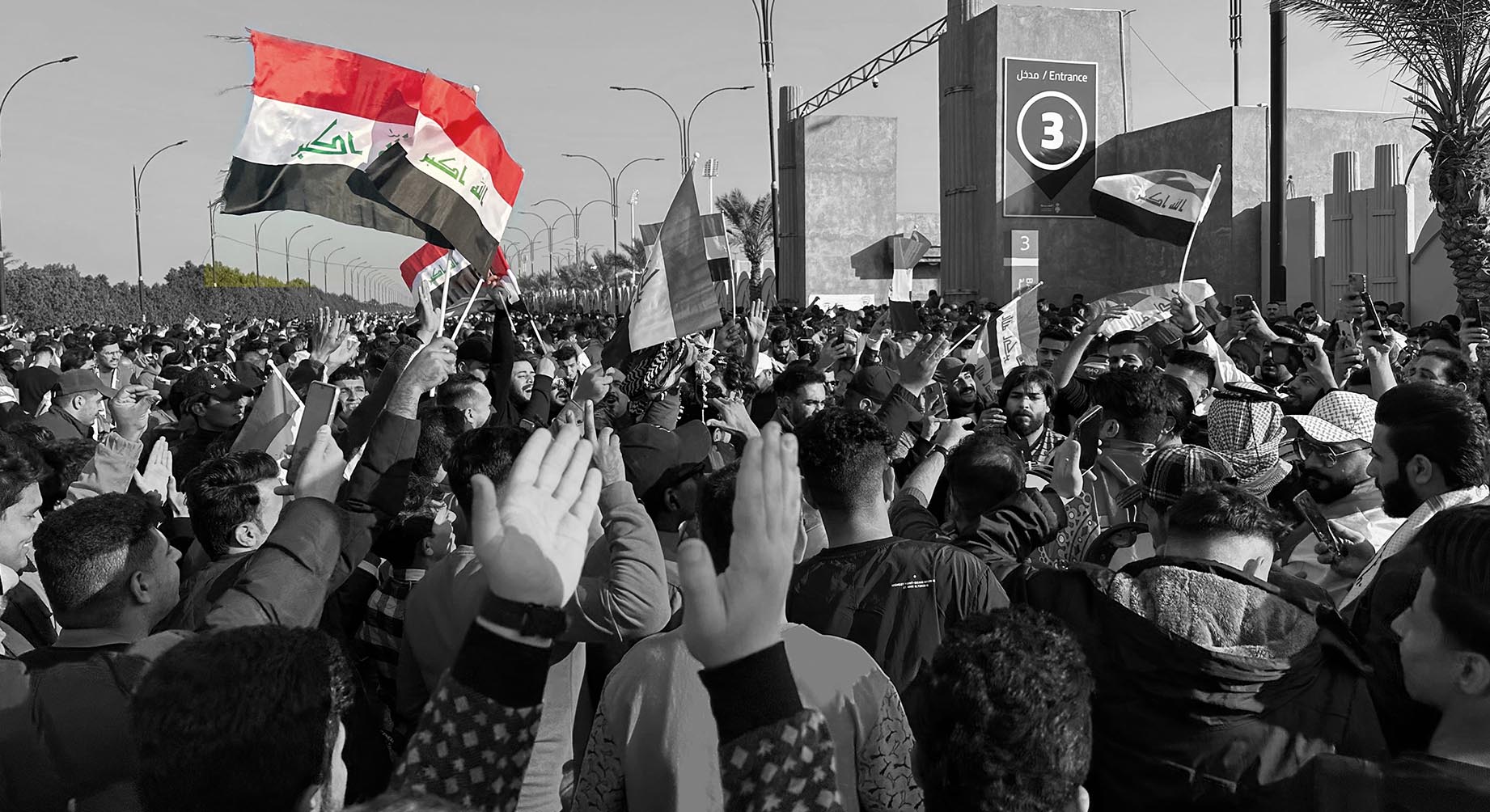
Civic Space in Iraq and the War on Gaza: Civil Society Besieged
The first four months of 2024 formed a new episode in a series of setbacks and narrowing of civil space in Iraq, which began when the government was formed in late 2022 by the State Building Alliance led by political Islamic parties close to Iran. The government took shape after a political conflict that lasted nearly a year and almost turned into a civil war between the armed factions. It ended with the Sadrist movement announcing its withdrawal from the political process.
These setbacks hindered the capabilities of the main actors in the civic space. In particular, NGOs suffered greatly from repeated attacks on their fundamental values, such as freedom of expression, demonstration, peaceful assembly, and access to information and data. The Kurdistan region also saw many types of violations due to the political crisis between the two dominant parties on the one hand and between them and the central government on the other. The economic crisis resulting from the cessation of oil exports and the non-payment of the region's employee salaries also played a part.
Civil society's retreat and decline of influence was no coincidence. It resulted from a systematic policy that created a gap between CSOs and society. It attempted to erase the idea of the gains they achieved and destroy the foundations of trust they had built since 2003. The old notion previously ingrained in public opinion that civil society is part of a hostile international system and a modern colonial tool was revived. The aim was to redefine the system of values and morals outside the prevailing and acceptable framework. The policy also sought to create a parallel system by supporting the establishment of organizations and think tanks supported by undeclared political connections and presenting them as an alternative to preserve morals, as they are linked to religious values and have connections with political parties in power.
Consequently, the authorities placed barriers to civic space. They excluded a segment of civic space actors from accessing policy-making processes following accusations that they were implementing programs that went against society's religious values. There were calls to hold CSOs accountable and withdraw their licenses for having implemented programs with foreign organizations that included activities defending gender and sexuality rights.
The government had previously banned these terms, considering them incompatible with the state's legal and social system. These measures have been supported by approving or seeking to approve a new legislative package that limits the vitality of human rights activity, amounting to criminalization in some instances. The government is also threatening to reformulate its legislative mandate to expand the powers of the administration and its ability to withdraw licenses without referring to the judiciary. Furthermore, it intends to create obstacles regarding external financing, putting restrictions on potential donors. On the other hand, it is expanding the use of technology and social media platforms as a tool of repression, sometimes by blocking websites or news agencies and preventing media appearances for opponents of government policies. It is using digital surveillance tools and digital armies to conduct wide-scale campaigns to mislead public opinion and distort reputations through psychological intimidation or threats leading to moral assassination, weakening the ability to influence, isolation, and non-participation in public affairs for fear of physical liquidation, which is always an option. Usually, extremist organizations confront their critics with the possibility of quickly escaping punishment in light of weak government procedures.
The decline and closure of civic space in Iraq did not prevent attempts to preserve previous gains through calls for solidarity, issuing statements, sending letters to local and international actors, and networking to reduce pressures by official and non-official actors and limit violations against human rights activists, the press, and unionist to end their harassment and imprisonment. In particular, the authorities intend to adopt laws regulating freedom of expression despite their repressive, rather than regulatory, nature, according to comments provided by CSOs.
On the other hand, the aggression against Gaza and the crimes committed against civilians by the Israeli entity had a dual impact on civil space in Iraq. The situation led to easing official and unofficial local pressure on some activities and the freedom to interact with the events. The space for supporting the Palestinian cause was expanded, as it did not contradict the government, which supported relief activities and protests at the start of the events late last year.
Aid was sent through the Iraqi Red Crescent to the Egyptian Al-Arish Airport to be sent to the residents of Gaza. Government support also reached the point of sometimes seeking to compete with these activities and sending messages that they are not isolated from the official direction of the state. When civil activists called on university students to organize a solidarity campaign with students in US universities in their movement against the genocide in Gaza and announced mechanisms for coordination and action, the Ministry of Education took the initiative to set a date for demonstrations inside universities, before the organizers announced their timing. The Ministry usually prohibits student organizations in universities. It believes they violate higher education laws and an act that requires strict accountability, as there are no legally recognized student unions.
On the other hand, the events affected civil society’s relationship with donors. When the events began, calls to protect civilians during the conflict were followed by calls to boycott the products of companies that support Israel. However, the latter's goals were not fully achieved due to the lack of a societal culture that believes boycotting goods can have a practical impact.
Later, more than 600 NGOs issued a statement entitled "A Cry to the Global Human Conscience" in solidarity with the Gaza Strip and the Palestinians. The statement called on the UN to forcefully and decisively apply the provisions of the Universal Declaration for Human Rights and Intervene to end the aggression. They demanded that the Palestinian issue be considered in a comprehensive manner, through its history and facts, and every human being's right to live in his homeland and land, in accordance with the provisions of international covenants and the implementation of international resolutions issued by the UN. They also called for an end to the collective punishment of the Gaza Strip.
As a result, information was leaked that more than one EU country intended to prohibit dealing with the organizations that signed the statement for incitement to hatred and violence. The nature and size of programs that received external support were put under pressure. However, many human rights defenders risked losing their funding if they proceeded with the declaration against the directions of some international donors, leading to the end of their partnerships. Nevertheless, the statement was prompted by the unjustified exposure of civilians in Gaza to violence and war, in contravention of human rights principles and international charters. These decisions may weaken the position of these organizations internally, as they often rely on their international partnerships to protect their work and individuals from arbitrary measures, especially with the hostility they face from government institutions.
Recent publications
